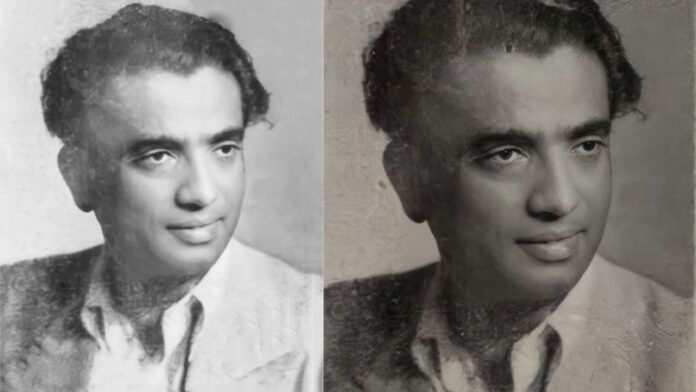Lahore: It has been 30 years since the passing of the legendary director and filmmaker S.M. Yousuf’s a name that still resonates in the history of South Asian cinema.
S.M. Yousuf’s an outstanding director, was born in 1910 in Mumbai, India. His journey in the world of cinema began at a time when the industry was in its nascent stages. In the pre-partition era, Yousuf made significant contributions to Indian cinema. After the partition of India in 1947, like many others, S.M. Yousuf migrated to Pakistan. Before moving, he had already made a name for himself in India by directing hit films such as “Mehndi,” “Naik Parveen,” “Aaina,” and “Gharasti,” which were well-received by audiences and critics alike.
Rise to Fame: The Journey of a Director
As a director, S.M. Yousuf’s first film was “Bharat Ka Laal,” released in 1936. This film marked the beginning of a prolific career that would span decades. His keen eye for detail, deep understanding of human emotions, and ability to tell compelling stories through cinema earned him a place among the top ten directors in the subcontinent, a position he holds even today in the annals of South Asian cinematic history.
Contributions to Pakistani Cinema
After moving to Pakistan, S.M. Yousuf continued his journey in filmmaking with the same passion and dedication. He made significant contributions to the Pakistani film industry, producing and directing movies that were not only commercially successful but also carried deep social messages. Yousuf’s films in Pakistan highlighted Eastern values, focusing on the importance of family, tradition, and social ethics. His ability to weave these themes into engaging narratives made his films both entertaining and thought-provoking.
One of his most notable films in Pakistan was “Aashiana,” which highlighted the role of women in society. Through this film, Yousuf emphasized the importance of women’s contributions to social and family life, a theme that was ahead of its time and resonated deeply with audiences.
Exploring Diverse Themes
S.M. Yousuf was not limited to making films solely about family and social issues. He explored a variety of topics in his cinematic works. Some of his other significant films include “Gumashta, Dolat, Rangeela Mazdoor,” Kahan Hai Manzil Teri,” and “Hyderabad Ki Nazneen.” Each of these films addressed different aspects of life, from the struggles of the working class to the complexities of human relationships.
In Pakistan, Yousuf achieved great success with the remake of his Indian film “Mehndi,” which he titled “Saheli.” The film became a super hit, and its songs were celebrated across the nation. The success of “Saheli” further cemented his status as a leading filmmaker in Pakistan.
Recognition and Awards
In 1962, S.M. Yousuf directed another blockbuster, “Aulad,” which was a critical and commercial success. Throughout his career in Pakistan, he made a total of 13 films, each contributing to the richness of Pakistani cinema. His exceptional work earned him multiple Nigar Awards, the highest honor in Pakistani cinema, recognizing his contribution to the industry.
Final Years and Legacy
In his later years, S.M. Yousuf moved to Canada, where he spent the final phase of his life. Despite living abroad, his connection to Pakistan remained strong. In 1994, Yousuf returned to Pakistan for a brief visit. Sadly, it was during this visit that he passed away on August 17, 1994, in Lahore.
A Cinematic Icon
S.M. Yousuf’s legacy continues to live on through his films, which remain a testament to his genius as a filmmaker. His work not only shaped the trajectory of cinema in the subcontinent but also left an indelible mark on the cultural landscape of South Asia. As we remember him 30 years after his passing, S.M. Yousuf’s contributions to the world of cinema continue to inspire new generations of filmmakers.


